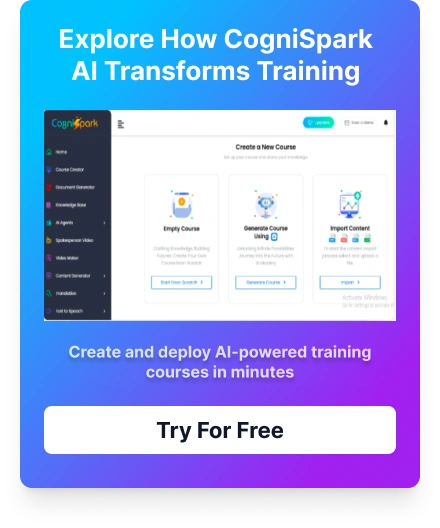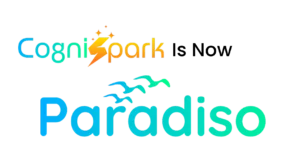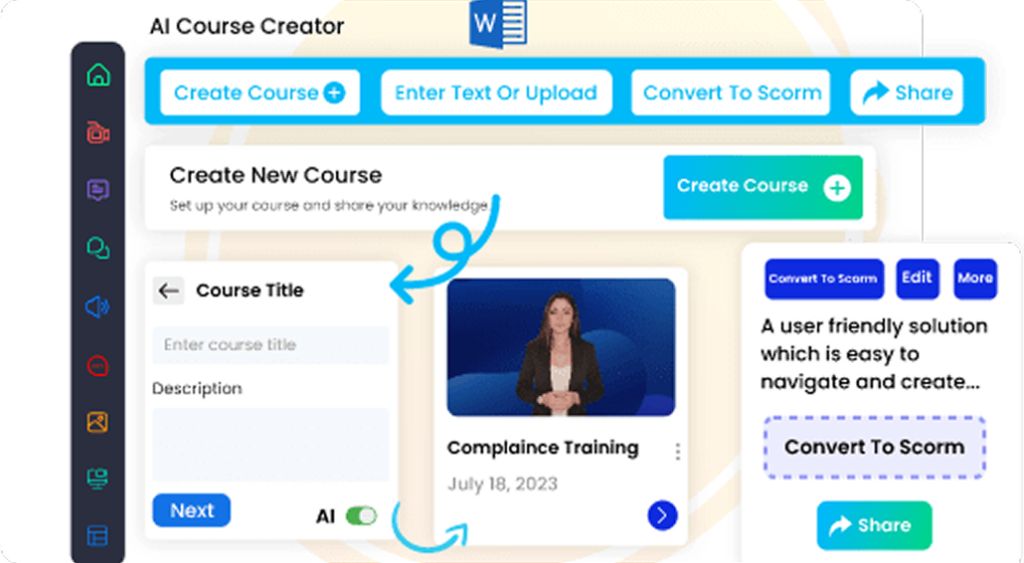The healthcare industry is evolving rapidly—with technology leading the way. From telemedicine to AI-driven diagnostics, innovation is improving patient care and professional development alike. One of the most significant advancements in this space is the rise of AI eLearning authoring tools for healthcare.
But how exactly do these tools work? And why should healthcare organizations adopt them? Let’s explore how eLearning authoring tools for healthcare, powered by AI, are reshaping medical training for the better.
What Are AI eLearning Authoring Tools for Healthcare?
AI-Powered eLearning authoring tool for healthcare are platforms that use artificial intelligence to streamline the creation of interactive, compliant, and customized training modules. These tools are specifically designed to meet the complex requirements of the healthcare industry, including:
- HIPAA compliance
- Continuing Medical Education (CME)
- Simulation-based training
- Adaptive learning pathways
- Rapid content updates for evolving protocols
Unlike traditional tools, AI authoring platforms analyze learner behavior, automate content generation, and deliver personalized experiences—making training more effective and less time-consuming.
Explore: 24 Best eLearning Authoring tools
Why Is AI Important in Healthcare eLearning Content Creation?
Creating content for healthcare training is not like making a generic workplace module. It demands precision, regulation compliance, and the ability to simplify complex medical concepts.
AI brings several benefits to the table:
- Automated content generation from research articles, clinical data, and case studies
- Real-time translation and localization for global healthcare teams
- Adaptive assessments to track knowledge gaps and boost retention
- Interactive simulations and branching scenarios that mimic real-life cases
- Voice-to-text integration for hands-free learning in clinical environments
- Microlearning recommendations that break down complex topics into manageable learning units to reduce cognitive overload
By reducing manual effort and enabling smarter design, AI tools empower instructional designers and medical educators to produce more impactful learning content.
How Do AI eLearning Authoring Tools Benefit Healthcare Professionals?
Healthcare professionals are time-constrained and often overwhelmed by the need for continuous education. AI-based authoring tools offer several advantages tailored to their needs:
AI brings several benefits to the table:
1. Faster Course Creation
AI eliminates repetitive tasks such as formatting, assessment generation, and slide design. This helps L&D teams produce courses in days—not weeks.
2. Personalized Learning Paths
3. Improved Compliance
Healthcare is highly regulated. AI ensures course content aligns with regional and global compliance standards, such as HIPAA, OSHA, and GDPR.
4. Better Engagement
With multimedia capabilities and conversational AI, these tools create interactive modules that drive learner engagement—making training less of a chore.
5. Analytics & Reporting
AI-powered dashboards provide insights into learner performance, skill gaps, and content effectiveness, helping HR and compliance teams make data-driven decisions.
6. Prebuilt Course Templates & Medical Content Libraries
Many AI eLearning authoring tools come with ready-to-use templates and healthcare-specific content. This saves time and ensures consistency in clinical topics like infection control, patient safety, or medical ethics.
7. Multilanguage Support for Global Teams
What Features Should You Look for in an AI eLearning Authoring Tool for Healthcare?
With built-in translation and localization, AI tools make it easy to deliver the same training across regions—helping multilingual teams stay aligned and certified.
- Medical content templates and pre-built compliance modules
- AI-driven content recommendations based on the latest guidelines
- Interactive elements like simulations, videos, and quizzes
- Mobile responsiveness for on-the-go learning
- Cloud-based collaboration tools for SMEs and instructional designers
- Multilingual support for diverse workforces
- SCORM/xAPI compatibility for seamless LMS integration
Platforms like CogniSpark AI, Articulate Rise, and Elucidat have already started integrating AI capabilities to cater to healthcare-specific needs.
Can AI Help Customize Content for Different Healthcare Roles?
Absolutely. From general physicians to lab technicians and administrative staff, AI eLearning authoring tools for healthcare can create role-specific content at scale.
For instance:
- A nurse can receive simulation-based modules on patient care.
- A hospital administrator may undergo data privacy compliance training.
- A surgeon might access procedural microlearning with embedded AR.
AI identifies the learning needs of each role and serves the most relevant content—reducing time spent on unnecessary training.
Are AI eLearning Authoring Tools Suitable for Patient Education?
Yes. With the increasing focus on patient-centered care, healthcare organizations are using AI-powered authoring tools to create educational resources for patients too.
These include:
- Post-operative care instructions
- Chronic disease management tutorials
- Medication adherence training
- Mental health awareness videos
AI ensures content is simplified, translated, and visually engaging for patients with varying literacy levels.
Key Takeaways
- AI-Powered eLearning authoring tools for healthcare streamline the creation of compliant, interactive, and personalized training.
- They help medical professionals stay updated, reduce training costs, and improve learner engagement.
- Key benefits include faster course development, role-specific learning paths, and detailed analytics.
- AI tools are also revolutionizing patient education and compliance tracking.
Ready to Revolutionize Your Healthcare Training?
Whether you’re managing training for a hospital, pharmaceutical company, or healthcare startup—now is the time to switch to AI. Invest in an eLearning authoring tool for healthcare that’s built for speed, compliance, and personalization.
What is the difference between traditional and AI eLearning authoring tools for healthcare?
Traditional tools require manual input for everything—content, design, and assessments. AI tools automate these processes, speeding up development while maintaining quality and compliance.
How secure are AI eLearning authoring tools in healthcare?
Most tools offer HIPAA-compliant data storage and secure user access protocols, making them suitable for handling sensitive health information.
Can these tools integrate with hospital LMS platforms?
Yes. Most AI authoring tools support SCORM, AICC, and xAPI standards, allowing seamless integration with Learning Management Systems (LMS).
Do I need technical skills to use these tools?
Not necessarily. Many tools are no-code or low-code, allowing instructional designers and SMEs to collaborate without IT expertise.























